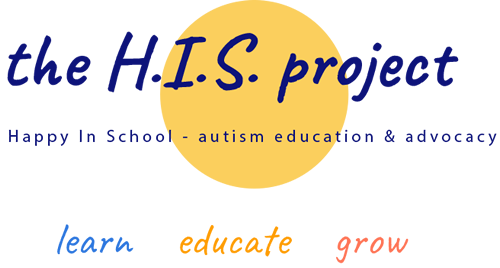Article published in The School Run: you can read the it here
If your child has special educational needs, supporting their physical and emotional wellbeing and academic progress at home during the lockdown and school closures offers its own unique set of challenges. Your success in supporting special educational needs children academically at home, is down to how skilfully you tailor your child’s learning needs to the home environment.
Here’s my SEN home learning survival guide, which I hope will help you if you’re at home with your autistic/ADHD kids.
Space & time

Acknowledge the space at home may not lend itself to home-learning. If the kitchen table is your learning station, consider sensory aspects that may affect concentration e.g. cooking smells, phone calls, sticky tabletops, dishwasher sounds, etc. If you need your child to move their work to make space to eat, provide folders or a box so they’re not stressed about losing what they’ve done.
Lose comfortable clothes are best, no zips or buttons to irritate, use a supportive chair and make sure they have a flat surface to write on. Notice how they hold their pen, read the questions. Make a note of things they struggle with, discuss later with their occupational therapist (OT) or speech and language therapist (SALT).
If your child uses noise-cancelling headphones at school, use them at home.
If they get bored quickly or fidget, combat natural distractibility and a shorter attention span, by using highly visual learning aids: illustrated textbooks, coloured paper, pens and file dividers. Break learning sessions into 15/20-minute chunks with movement breaks.
Aim to make your home-learning session dynamic and engaging (important for kids with shorter attention span). Use a clock or watch to help with their time management.
Elastic bands, fiddle toys or special fabrics help anxious or hyperactive kids to release excess energy or calm themselves down.
A fixed routine may not work for ADHD kids; use adaptative techniques to encourage your child to learn with you.
If your child is rigid about sticking to a timetable or anxious and demand avoidant (PDA), the stress of learning together can highlight differences in your personalities, resulting in one or both of you losing your temper. Avoid head to head confrontations over how and when they learn, the key is that learning happens!
Calming breathing exercises are an excellent way to settle everyone before a home learning session. Try yogic breathing exercises.
Speak to your psychiatrist about medication during home learning, especially if they’ve been on it for school. Check in frequently to keep them on task. Some kids are slow to get going, but don’t stop them if they’re in the flow (even if they’ve gone past their 15/20 minutes), give lots of praise for concentrating so well and working with you.
Home inspiration

Shopping lists, bills, menus, TV guides, teach budgeting, planning etc, (Maths, English, Science). Washing machines, fridges, dishwashers all illustrate how energy is used. (Science).
Listen to your child read. Read to them. Introduce new reading material – newspapers, recipes, instructions for games (English). Listen to podcasts, audio books, interchange digital learning with other learning aids – books, flip cards, posters.
Visit online galleries or use google earth to go on a virtual holiday. Investigate another country or part of the world, talk about which countries you have visited. (Art, History, Geography). Make a family tree with photographs, this is a highly visual activity and teaches your child the basics of history and even biology!
A specialist subject?

Include your autistic child’s special interest as a way to engage them in home learning. Expand their learning around their interest. Write a story about why they like it (English). Research someone in their specialist field and their contribution? (History). Record or film them talking about their special interest and post it online, with their consent. (IT, computing).
Another thing you could consider now we all have more time, is to talk to your child about their autism or ADHD. There are loads of books to guide you in these important conversations. (PHSE). Do you research, thing about the words you use. And take your time – this isn’t a conversation you will have once. Learning about yourself is a subject your child will do for their entire life. Introduce this subject in a positive and leisurely way. It’s one you will need to continue as they develop as teenagers and young adults. Most of all, remember to tell them they’re loved and unique.
Work from school/Google classroom
 Try to complete work sent from school. Teachers have taken time to set it and will mark it. If you encounter resistance, offer a choice of the schoolwork or another piece of learning you can do together. Try again.
Try to complete work sent from school. Teachers have taken time to set it and will mark it. If you encounter resistance, offer a choice of the schoolwork or another piece of learning you can do together. Try again.
Use the same format the work was sent in, to return it. Encourage your child to upload digital school assignments. If they’re not able to do this, you will need to help.
Covering a broad range of topics in your home-learning, means you are scooping up more elements of the National Curriculum: BBC Bitesize, MathsWatch, MyMaths, https://learning-resources.sciencemuseum.org.uk/resources/
Managing emotions and moods

Your child, especially if they were in Y6, Y11 or Y13, has experienced a shock and needs time to adjust. Any sudden change increases their anxiety, because of disruption to their routine. Improve their mood by building a new routine together. Their well-being is paramount; if they’re settled and happy, your home learning has a higher chance of success.
So, what next?
We are all experiencing quite extraordinary circumstances, don’t be discouraged if some days you barely manage to speak without arguing or one of you doesn’t get dressed. Learning isn’t all about certificates, qualifications and exams.
Learning is understanding how to LIVE. How to find something you love doing and work out how to make it your living. How to live and work with other people who have different ideas and opinions to you. How to share and plan and delegate, listen to others and laugh at yourself. And to appreciate that you are genuinely lucky to be alive.
If you and your child are learning anything, during your time at home together, especially this is indeed a rich education.
Take care of you and yours.
© Suzy Rowland
[contact-form][contact-field label=”Name” type=”name” required=”true” /][contact-field label=”Email” type=”email” required=”true” /][contact-field label=”Website” type=”url” /][contact-field label=”Message” type=”textarea” /][/contact-form]
